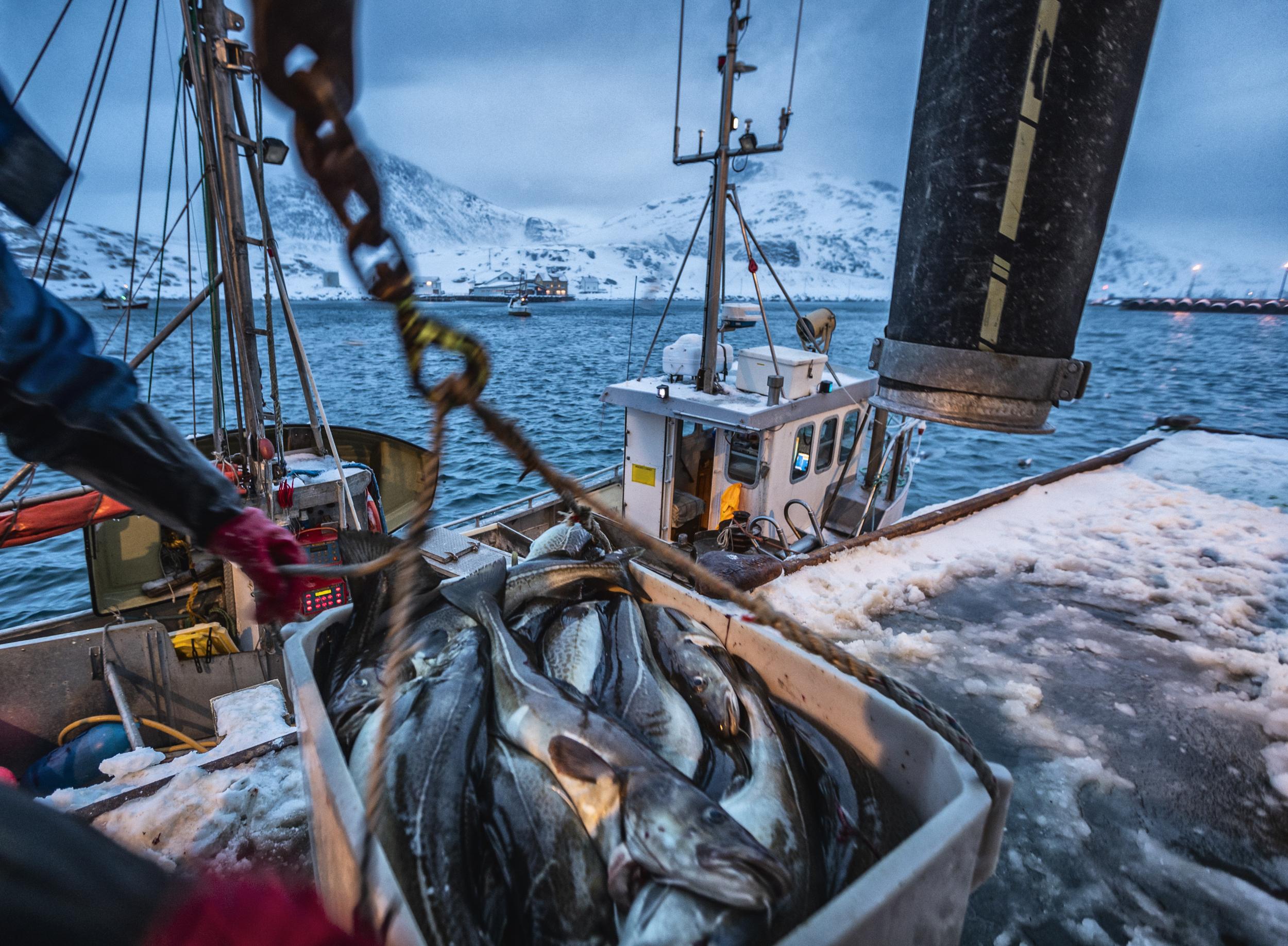Climate breakdown leaving polar seas open to exploitation, scientist warns
Russian and Norweigian trawlers are already benefiting from historically high numbers of cod in Arctic waters

Your support helps us to tell the story
From reproductive rights to climate change to Big Tech, The Independent is on the ground when the story is developing. Whether it's investigating the financials of Elon Musk's pro-Trump PAC or producing our latest documentary, 'The A Word', which shines a light on the American women fighting for reproductive rights, we know how important it is to parse out the facts from the messaging.
At such a critical moment in US history, we need reporters on the ground. Your donation allows us to keep sending journalists to speak to both sides of the story.
The Independent is trusted by Americans across the entire political spectrum. And unlike many other quality news outlets, we choose not to lock Americans out of our reporting and analysis with paywalls. We believe quality journalism should be available to everyone, paid for by those who can afford it.
Your support makes all the difference.Climate breakdown is leaving polar seas exposed to exploitation from industrial fishing which could “weaken the will” of people to take urgent climate action, a scientist has warned.
Alex Rogers, a visiting professor of conservation at Oxford University, says Russian and Norweigian trawlers are already benefiting from historically high numbers of cod in Arctic waters as the fish move north.
In Antarctic waters, trawlers will also be able to catch fish for a larger proportion of the year, according to a piece in The Conversation.
He said: “Some quarters are bound to try to cash in on the increase in economic value of the polar regions – and perhaps even weaken the will to take urgent climate action by selling this warming as beneficial.”
He told The Independent: “The trawlers are regulated in so far as they are managed the governments of Norway and Russia.
“However, what I would say, having been up there, is that there is a large impact from those trawlers on the seabed and that has not been regulated at all.”
In the Antarctic, major fishers of krill are China, South Korea, Ukraine and Norway.
Norway has developed new technology that means krill can be sucked straight out of the trawls into the ships so they can be left in water and don’t spoil so quickly. It is also looking to catch fish living in the twilight zone between 200m and 1,000m deep.
The UK, Australia, New Zealand, Russia, Ukraine, Argentina, Chile and Uruguay are also fishing in Antarctic waters, according to Professor Rogers. They are mainly fishing an extremely valuable species known as toothfish, or Chilean sea bass.
However, the economic benefits of fishing come with severe ecological costs.
A number of studies have shown species dependent on krill such as Adélie and macaroni penguins are in decline. Minke whales and pack-ice seal will lose the sea ice they depend on for foraging and reproduction.
Professor Rogers said: “Researchers have found a combination of climate change and fishing for krill could lead to extinctions of penguins on some of those Subantarctic islands.
“If the fishing pressure was removed then those populations would still decline but they wouldn’t disappear. These types of interactions are the ones that are very difficult to understand.”
Earlier this year research found the Ross Ice Shelf – which is the biggest in the world – was melting 10 times faster than expected due to solar heating in the Antarctic ocean. The Arctic is currently losing an area of ice larger than Scotland ever year.
Professor Rogers says protecting polar marine habitats is extremely difficult because we know very little about them. Governments need to make it clear that “the poles are not for sale”, he says.
Organisations managing fisheries and marine industries also need to properly quantify how their activities affect wildlife.
Earlier this year the EU and the Arctic Five signed an agreement banning fishing in specific areas of the Arctic until scientists worked out if it could be done sustainably.
Professor Rogers said: “British and French sub-Antarctic territories such as the South Sandwich Islands and St Paul and Amsterdam are still not comprehensively protected. Rectifying this would be a good start.
“Different areas of the polar oceans are managed by different nations, and a lack of communication is preventing them from being properly protected. A unified conservation effort could establish vast uninterrupted networks of protected areas.
“These would make it much easier for species and even entire ecosystems to move polewards as waters warm.
“Let’s not make things worse by treating the polar oceans as a burgeoning economic resource. Instead, let’s give the life they contain the respect it deserves,” he said.
Join our commenting forum
Join thought-provoking conversations, follow other Independent readers and see their replies
Comments